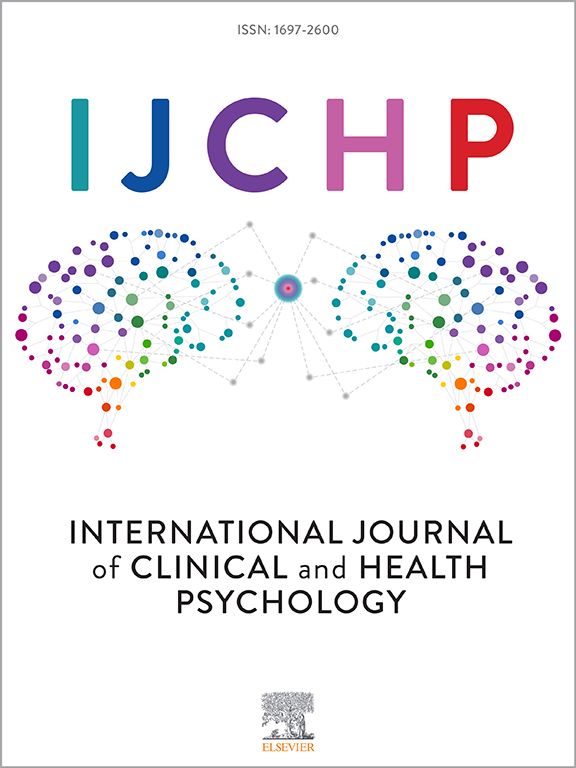Neurobiological correlates of CBT response in OCD through the analysis of resting state networks
IF 4.4
1区 心理学
Q1 PSYCHOLOGY, CLINICAL
International Journal of Clinical and Health Psychology
Pub Date : 2025-04-01
DOI:10.1016/j.ijchp.2025.100585
引用次数: 0
Abstract
Obsessive-compulsive disorder (OCD) is a psychiatric condition characterized by obsessions and compulsions that cause significant distress and functional impairment. Cognitive-behavioral therapy (CBT), particularly involving exposure and response prevention (ERP), is a first-line treatment for OCD, though patient response varies widely. This study investigates the neurobiological correlates of CBT response in OCD, focusing on resting-state functional connectivity (rsFC) alterations. Twenty-five patients with OCD and 26 matched controls underwent resting-state fMRI at baseline and post-CBT. Results indicated decreased rsFC at baseline in OCD patients compared to controls within the higher visual (HVN), posterior salience (PSN), and language networks (LN). Following CBT, patients showed increased HVN connectivity, suggesting a normalization of the rsFC within this network. Additionally, we found an association between baseline LN rsFC and symptom improvement after CBT (the higher the connectivity, the more the symptom improvement), suggesting that LN connectivity could be a predictor of treatment response. These findings emphasize the role of sensory processing networks in OCD and highlight the ability of CBT to modulate brain connectivity.
通过静息状态网络分析强迫症患者CBT反应的神经生物学相关性
强迫症(OCD)是一种精神疾病,以强迫和强迫为特征,导致严重的痛苦和功能障碍。认知行为疗法(CBT),特别是涉及暴露和反应预防(ERP),是强迫症的一线治疗方法,尽管患者的反应差异很大。本研究探讨了强迫症患者CBT反应的神经生物学相关性,重点关注静息状态功能连接(rsFC)的改变。25名强迫症患者和26名匹配的对照组在基线和cbt后接受静息状态功能磁共振成像。结果显示,在高视觉(HVN)、后显性(PSN)和语言网络(LN)范围内,强迫症患者在基线时的rsFC比对照组降低。CBT后,患者HVN连通性增加,表明该网络中的rsFC正常化。此外,我们发现基线LN rsFC与CBT后症状改善之间存在关联(连通性越高,症状改善越多),这表明LN连通性可能是治疗反应的预测因子。这些发现强调了感觉处理网络在强迫症中的作用,并强调了CBT调节大脑连接的能力。
本文章由计算机程序翻译,如有差异,请以英文原文为准。
求助全文
约1分钟内获得全文
求助全文
来源期刊

International Journal of Clinical and Health Psychology
PSYCHOLOGY, CLINICAL-
CiteScore
10.70
自引率
5.70%
发文量
38
审稿时长
33 days
期刊介绍:
The International Journal of Clinical and Health Psychology is dedicated to publishing manuscripts with a strong emphasis on both basic and applied research, encompassing experimental, clinical, and theoretical contributions that advance the fields of Clinical and Health Psychology. With a focus on four core domains—clinical psychology and psychotherapy, psychopathology, health psychology, and clinical neurosciences—the IJCHP seeks to provide a comprehensive platform for scholarly discourse and innovation. The journal accepts Original Articles (empirical studies) and Review Articles. Manuscripts submitted to IJCHP should be original and not previously published or under consideration elsewhere. All signing authors must unanimously agree on the submitted version of the manuscript. By submitting their work, authors agree to transfer their copyrights to the Journal for the duration of the editorial process.
 求助内容:
求助内容: 应助结果提醒方式:
应助结果提醒方式:


